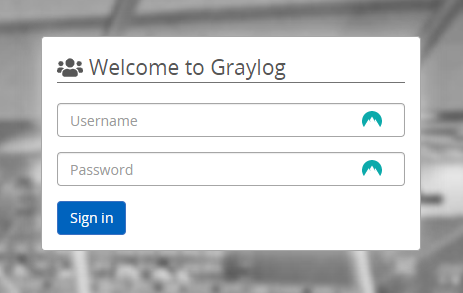Introduction
I want to get some experience ingesting and sorting through data in Graylog. A Docker container is a perfect way to quickly and easily set this up. In the future I want to set up a more robust version but this works for now.
Install Docker
You can see guides on how to here. After you install Docker, install the compose plugin.
Once both of those are installed run:
1
2
3
4
5
sudo groupadd docker
sudo usermod -aG docker $USER
newgrp docker
sudo systemctl enable docker.service
sudo systemctl enable containerd.service
This will perform the Docker post install steps and configure the daemon to start automatically.
Create and deploy Splunk Container with docker-compose
I created a docker-compose.yml to make deploying the container easier since you need to deploy 3 separate containers. Of course we need to deploy the graylog container but it also uses an elasticsearch and mongoDB container.
docker-compose.yml
1
2
3
4
5
6
7
8
9
10
11
12
13
14
15
16
17
18
19
20
21
22
23
24
25
26
27
28
29
30
31
32
33
34
35
36
37
38
39
40
41
42
43
44
45
46
47
48
49
50
51
52
53
54
55
56
57
58
59
60
61
62
63
64
65
66
67
68
69
70
71
72
73
74
75
76
77
78
79
version: '2'
services:
# MongoDB: https://hub.docker.com/_/mongo/
mongodb:
image: mongo:4.2
container_name: mongo
networks:
- graylog
#DB in share for persistence
volumes:
- /mongo_data:/data/db
# Elasticsearch: https://www.elastic.co/guide/en/elasticsearch/reference/7.10/docker.html
elasticsearch:
image: docker.elastic.co/elasticsearch/elasticsearch:7.10.2
container_name: elasticsearch
#data folder in share for persistence
volumes:
- graylog_journal:/usr/share/graylog/data/journal
environment:
- http.host=0.0.0.0
- transport.host=localhost
- network.host=0.0.0.0
- "ES_JAVA_OPTS=-Xms512m -Xmx512m"
ulimits:
memlock:
soft: -1
hard: -1
mem_limit: 1g
networks:
- graylog
# Graylog: https://hub.docker.com/r/graylog/graylog/
graylog:
image: graylog/graylog:4.2
container_name: graylog
#journal and config directories in local NFS share for persistence
volumes:
- graylog_journal:/usr/share/graylog/data/journal
environment:
# CHANGE ME (must be at least 16 characters)!
- GRAYLOG_PASSWORD_SECRET=somepasswordpepper
# Password: admin
- GRAYLOG_ROOT_PASSWORD_SHA2=e1b24204830484d635d744e849441b793a6f7e1032ea1eef40747d95d30da592
- GRAYLOG_HTTP_EXTERNAL_URI=http://0.0.0.0:9000/
entrypoint: /usr/bin/tini -- wait-for-it elasticsearch:9200 -- /docker-entrypoint.sh
networks:
- graylog
links:
- mongodb:mongo
- elasticsearch
restart: always
depends_on:
- mongodb
- elasticsearch
ports:
# Graylog web interface and REST API
- 9000:9000
# Syslog TCP
- 1514:1514
# Syslog UDP
- 1514:1514/udp
# GELF TCP
- 12201:12201
# GELF UDP
- 12201:12201/udp
# Volumes for persisting data, see https://docs.docker.com/engine/admin/volumes/volumes/
volumes:
mongo_data:
driver: local
es_data:
driver: local
graylog_journal:
driver: local
networks:
graylog:
driver: bridge
Make sure to create your own password and replace the “somepasswordpepper”:
1
pwgen -N 1 -s 96
Then generate the SHA256 hash for it:
1
echo -n "Enter Password: " && head -1 </dev/stdin | tr -d '\n' | sha256sum | cut -d" " -f1
login in with:
1
2
username : admin
password <GRAYLOG_PASSWORD_SECRET>
Next run the containers in detached mode.
1
docker compose up -d
Wait a few minutes for the container to deploy and for the console load. You can check the status of your container with docker ps. If no container shows up, your container may have failed. If you want to see why it failed you can run docker logs <container_name>.
To access the Graylog console navigate to http//localhost:9000
Generating Practice Data
Since I am developing this on the Ubuntu app on a Windows host I need to find a way to send Windows Event Logs to Graylog. There were multiple options but the most documented one was installing and configuring NXLog. I followed the HackerTips guide to forward Windows Event Logs to the GELD UDP interface oin port 12201. I now have some practice data to use on my Gray log instance. 
Resources
https://computingforgeeks.com/how-to-run-graylog-server-in-docker-containers/
https://thehackertips.com/sending-syslog-from-windows-hosts-to-graylog-server/

